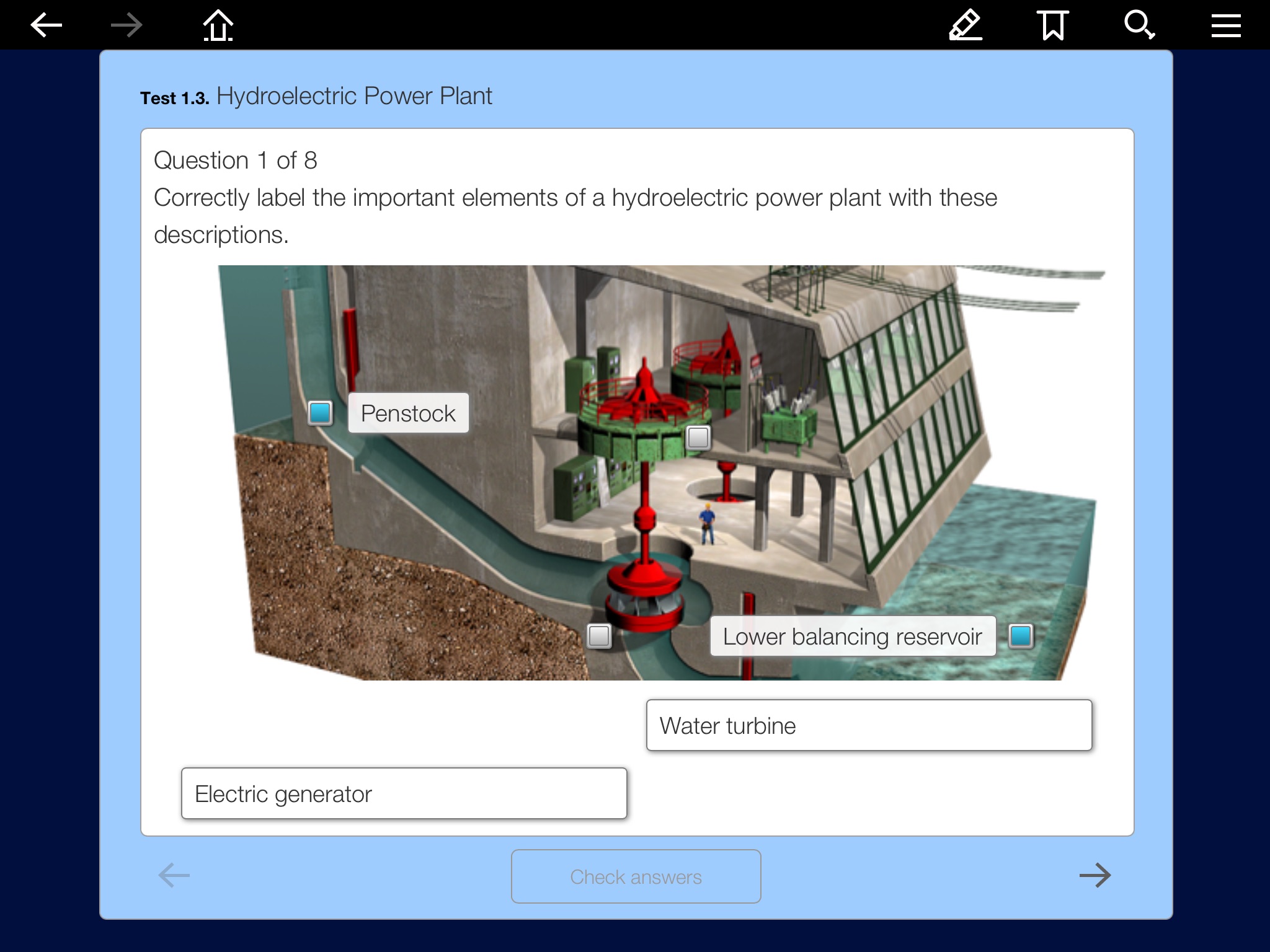
Renewable Energy Sources app for iPhone and iPad
Developer: Simopt, s.r.o.
First release : 06 Aug 2013
App size: 515.76 Mb
The electronic book “Renewable Energy Sources“ presents an introduction to all aspects of electric energy generation using alternative sources that are ever increasing in the electricity producer’s energy portfolio.
Water energy is still the most widely used and known renewable energy source. However, power output of wind and solar power plants has also exhibited a pronounced increase in the last few years. Apart from water, solar and wind energy, the book also covers sources using geothermal energy and biomass energy.
Brief outline of our publications
• Water energy – types of water energy and its usability, dykes and dams, water turbines and power plants, sea energy usability, …
• Wind energy – airflow energy, history, wind power plants and farms, types of wind turbines, …
• Solar energy – solar collectors and concentrators, tower and farm power plants, photovoltaic panels, …
• Earth energy – geothermal effects and systems, geothermal power plants, direct use of heat, …
• Biomass energy – biomass processing, available technologies, biofuel, biomass power plants, …
• Future of renewable resources – growing energy demand, development of renewable resources, …
Each renewable energy source is logically divided describing its history, working principals, technological processes, types of used equipment, as well as characteristics of the largest global power plants. Information is presented using brief and captive form and the text includes many illustrative photo galleries. Important topics and objects are presented using interactive schematics and animated or interactive 3D models in order to facilitate better understanding. Each chapter, apart from the explanatory text, also includes attached multimedia files containing didactic tests that make this publication not just a modern source of interesting information but could be also used for energy education at schools.
The final chapter contains contemplation about ever increasing global energy consumption, limited deposits of fossil fuels and future and prospects of presented renewable energy sources.
The Renewable Energy Sources publication contains 220 pages of engaging reading including 450 photographs, 68 illustrations, 20 3D models, 24 videos and 13 interactive schematics. Undoubtedly, it is the most extensive multimedia publication on renewable energy sources that you may have in your electronic library, in existence today.



